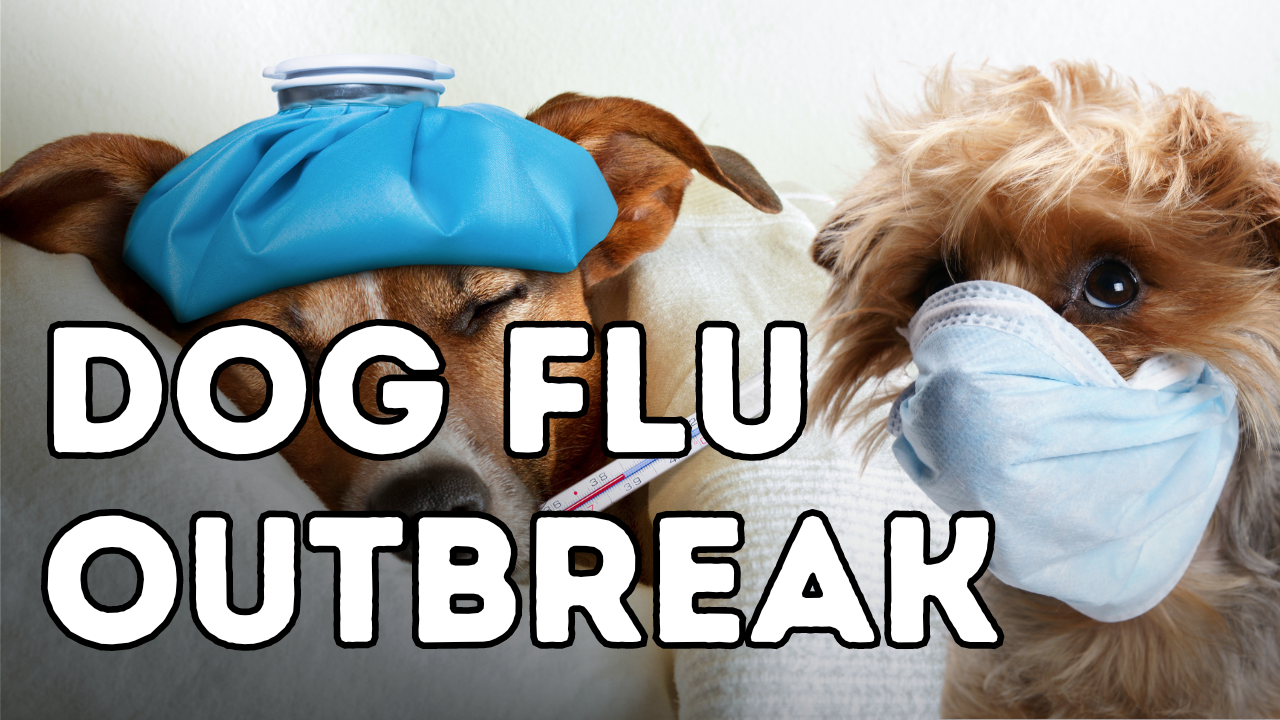Dog Flu Outbreak- Vaccinate your dog?

Currently there is a Dog Flu outbreak happening in the U.S. (Minnesota), with many people wondering whether to vaccinate or not.
It can be serious, and none of us want our pets to get sick.
But vaccines (as you may know), are not the only way to help with infectious disease…
Quercetin is a type of flavonoid antioxidant that’s found in plant foods, including leafy greens, tomatoes, berries and broccoli, apple and red onion. It’s technically considered a “plant pigment.
It has multiple studies showing it to be beneficial for respiratory disease, and we now have our own Quercetin supplement.
Dr. Jones’ Ultimate BioActive Quercetin is a powerful antioxidant with antihistamine, anti-inflammatory, and antiviral properties. The supplement contains naturally sourced Sophora Japonica flower extract, in capsule form (powder in capsules), and is generally more bio-available than other quercetin forms. Each capsule contains 50mg quercetin, with 30 capsules per jar.
shop.veterinarysecrets.com/dr-jones-ultimate-bioactive-quercetin.html/


Understanding Canine Influenza: A Veterinarian’s Perspective
As a veterinarian committed to the well-being of our four-legged friends, it’s crucial to address the recent surge in canine influenza cases, particularly highlighted by the pandemic’s influence on pet adoption and care. Dr. Mitchell Fry from Como Park Animal Hospital in St. Paul has observed a noticeable increase in dog flu cases. This rise can be attributed to the higher number of dogs at home requiring boarding and the increased fullness of shelters and boarding facilities.
The Challenge of Canine Influenza in the Twin Cities
Dr. Fry notes that with more people adopting dogs during the pandemic, boarding facilities are overwhelmed, mirroring trends in major cities like Chicago. This uptick in canine inhabitants at shelters and boarding facilities inevitably raises the risk of spreading canine influenza.
Vaccine Limitations and Preventative Measures
Currently, the canine influenza vaccine availability is limited in the Twin Cities. Dr. Fry emphasizes the importance of vaccination for dogs that are older, have a history of heart disease or respiratory infections, or those frequently boarding. If a dog presents symptoms suggestive of the flu, stringent precautions are taken, including greeting the dog at the vehicle while wearing full PPE, avoiding ground contact, and promptly conducting necessary diagnostics like x-rays or blood tests.
Key Recommendations for Dog Owners
- Limit Exposure: Reduce your dog’s interaction with other dogs, especially in high-density areas like dog parks, boarding facilities, and daycare centers.
- Opt for In-Home Care: If possible, consider an in-home dog sitter to minimize exposure to communal environments.
- Isolation and Hygiene: Maintain cleanliness and quarantine measures, especially since the virus can be spread for up to 30 days by infected dogs.

Understanding the Symptoms and Risks of Dog Flu
Canine influenza symptoms closely resemble those seen in humans, including fever, cough, nasal discharge, and lethargy, lasting about two weeks. Although most dogs experience mild forms of the disease, a small percentage can develop severe illnesses like pneumonia. It’s vital to note that canine influenza primarily affects dogs, with no known transmission to humans.
My View: Managing Canine Influenza
Despite there being 75 million dogs in the US and Canada and around 1,000 reported cases, the risk remains relatively low, approximately 1 in 100,000. Therefore, it is crucial to weigh the benefits against the potential risks of new vaccines, which may include side effects not fully understood or reported despite widespread use.
Personal and Professional Stance on Vaccination
Given the nature of this new disease and the limited data on vaccine side effects, I personally choose not to vaccinate my dogs against canine influenza and advise pet owners to consider their specific circumstances. Most dogs show only mild symptoms and recover with supportive care, emphasizing the importance of a robust immune system supported by good nutrition and appropriate supplements.
Awareness is key. While the canine flu can be serious, the probability of severe illness is low. It’s essential to understand the options available for maintaining your dog’s health, including nutritional choices and supplements like Dr. Jones’ Ultimate BioActive Quercetin, which supports immune function and provides anti-inflammatory benefits.
For more detailed insights into maintaining your pet’s health, visit my website: Dr. Jones’ Ultimate BioActive Quercetin.
